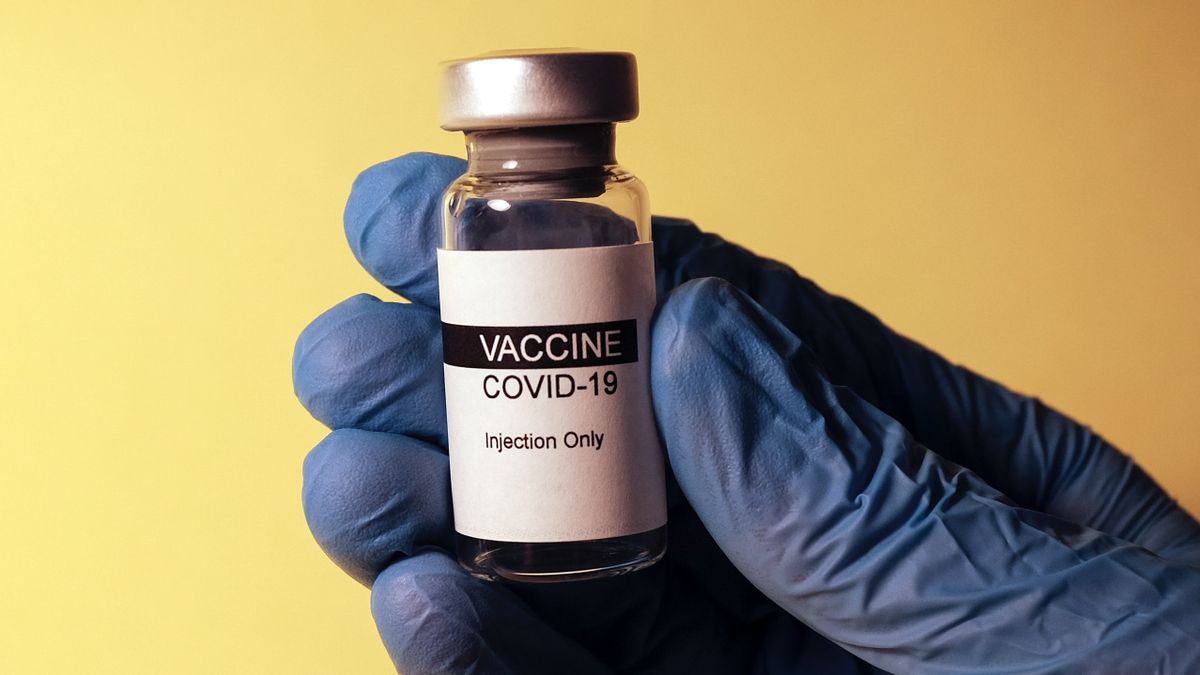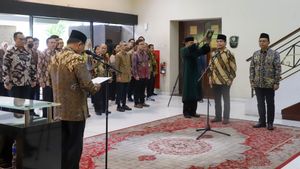
JAKARTA - A number of Catholic bishops are considering preventing their church congregation from getting the Johnson & Johnson COVID-19 vaccine if there are other vaccine alternatives.
The Conference of Catholic Bishops of the United States (US) and at least six other dioceses from within the country, issued a statement of moral concern regarding the development of a vaccine using cells developed in the laboratory. The cells were retrieved in the 1980s from an aborted fetus.
The Johnson & Johnson vaccine is the third vaccine approved for use in the United States. Unlike the previous two vaccines, the Pfizer vaccine and the Moderna vaccine, this vaccine only requires one injection dose and can be stored at normal refrigerator temperatures.
"If people are offered the Johnson & Johnson vaccine, they shouldn't say, 'I don't want it. We are not in a scenario where we can choose a vaccine", said Alabama Vaccine Research Clinical Director Dr. Paul Goepfert last month, cited from CNN.
Prior to authorizing the US emergency use of the Johnson & Johnson vaccine, the Office of Doctrinal for the Roman Catholic Church Congregation for the Doctrine of the Faith said it was morally acceptable for a COVID-19 vaccine to have used cell lines from aborted fetuses in its research and production processes.
"Our single injection COVID-19 vaccine uses an inactivated, non-infective adenovirus vector, similar to the flu virus that encodes the spike protein (S) of the coronavirus, and no fetal tissue in the vaccine", said a Johnson & Johnson representative in an interview with CNN.
"We are capable of producing hundreds of millions of doses using an engineered cell line system. We hope to deliver these doses worldwide and help meet critical needs", continued Johnson & Johnson.
Nebraska Medicine infectious disease expert James Lawler said the Pfizer/BioNTech vaccine and Moderna vaccine use cell lines derived from fetal tissue to test their vaccines.
"Whereas Johnson & Johnson uses it in development, confirmation, and production", said an infectious disease expert at Nebraska Medicine, James Lawler.
Lawler explained, the company developed an adenovirus vector vaccine, in which adenovirus, which has been modified so as not to cause disease, carries genetic material with the coronavirus spike protein into the body. So that a person's cells can make the spike protein itself and activate the immune system, fighting off the virus.
"Johnson & Johnson uses the fetal cell line it does because it is a well-studied industry standard for safe and reliable production of viral vector vaccines", Lawler said.
In this regard, the Archdiocese of New Orleans called the Johnson & Johnson vaccine morally compromised in a statement last week, and the Dioceses of Baton Rouge, New Orleans, and Burlington, Vermont, have issued statements expressing concern over the manufacturing process.
Bishop Michael Duca of Baton Rouge Diocese issued a statement that read, "If under reasonable circumstances you can only receive the vaccines from Johnson and Johnson, you should feel free to do so for your safety and for the common good", he said.
However, the decision to receive the vaccine is said to be a matter of conscience of the individual vaccine recipient and health service provider.
SEE ALSO:
The US Conference of Catholic Bishops said in a statement last Tuesday that the Johnson & Johnson vaccine is morally acceptable when an option that is not ethically reprehensible is not available.
"In light of the worldwide suffering caused by this pandemic, we reiterate that vaccination can be a charitable act serving the common good", the statement said.
The English, Chinese, Japanese, Arabic, and French versions are automatically generated by the AI. So there may still be inaccuracies in translating, please always see Indonesian as our main language. (system supported by DigitalSiber.id)











